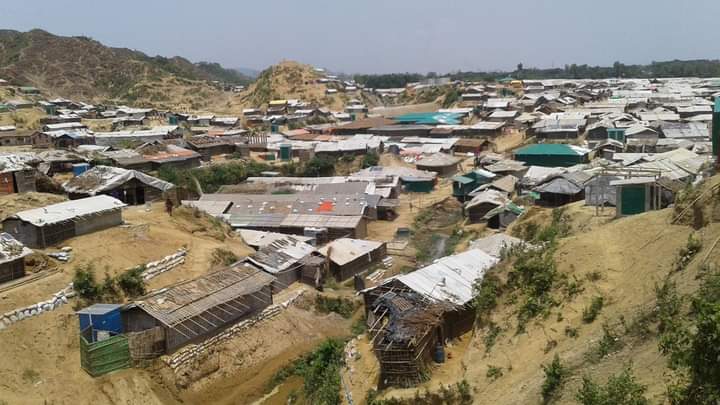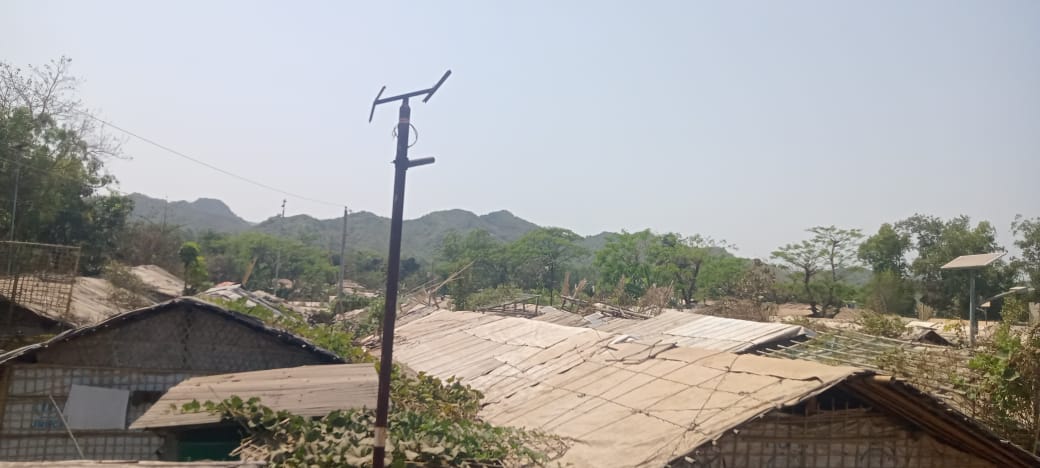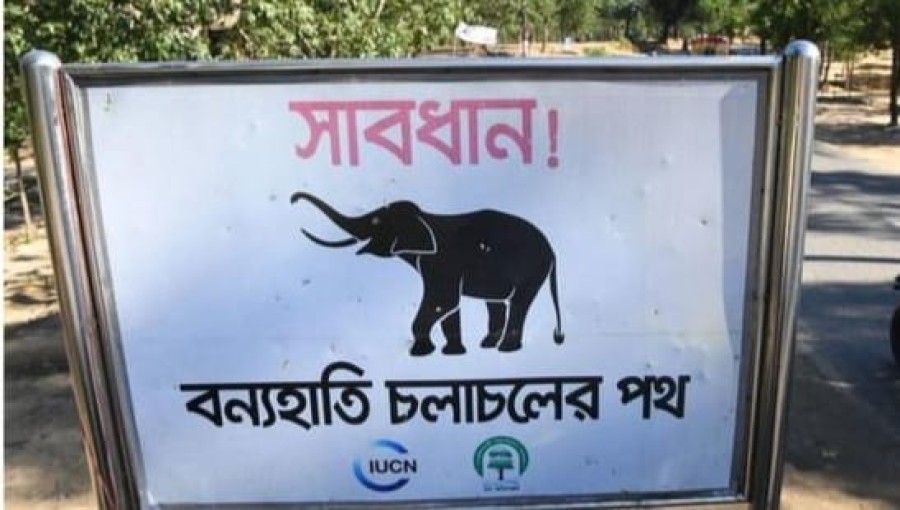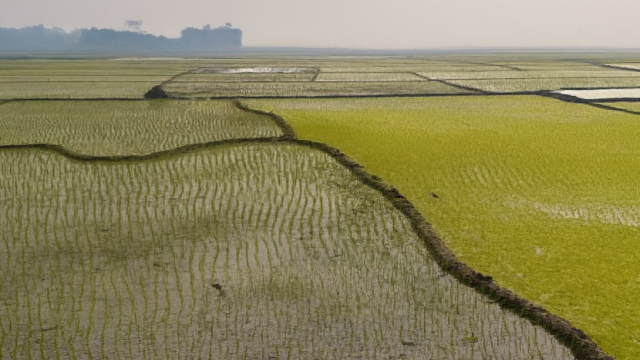lowering of the water table, pollution of groundwater reservoirs in some situations, and depletion of groundwater reservoirs as a result of the construction of more tube wells.
In the past five years, over 12, thousand acres of Ukhiya, a protected forest area of Cox's Bazar district in Bangladesh, have been devastated.
While providing refuge to Rohingya refugees, this woodland was devastated. One of the home ranges for the critically endangered Asian elephant species was the woodland of Ukhiya-Teknaf. Moreover, there is danger to the wild elephants. As a result, each year, wild elephants invade the area. Cattle deaths are occurring at a startling pace, along with elephant deaths.
.jpeg)
'Wild Hand Movement Path' warning signs are erected along the Ukhiya Kutupalong roadway. Adjacent to it, a refugee camp has been constructed and little trees have been chopped down. Gradually, over 200,000 makeshift homes have been constructed by chopping down the slopes of steep hills or hills.
There are no roads, drainage canals, tube wells, electricity lines, restrooms, warehouses housing offices for different public and commercial organisations, and so on. To make fuel, forests are being removed. The wild elephants' regions of mobility and wandering have been restricted. It is impossible to comprehend now because these hills were home to elephants and verdant trees five years ago.
The Forest Department reports that around 12 thousand 2 hundred acres of the region's forest area had been devastated to make way for the construction of Rohingya shelters and other infrastructure. In addition, three to four thousand acres of wood have been cleared for the Rohingyas' fuel needs.
.jpeg)
The extensive mountainous woods of Cox's Bazar and Teknaf, renowned for being home to mammalian animals, are home to 525 different types of plants. However, these are currently in danger of being destroyed because of the Rohingya communities in the highlands.
Since August 25, 2017, the Rohingyas have been residing in Ukhiya Kutupalong, Balukhali, Telkhola Moshar Khola, Makkararbil or Hakimpara, Jamtoli Bagghona, Shafiullah Kata, and Putibuniya Unchiprang Zhimang Khali, Rangikhali, Leda Mochoni, and Jadimura Forest Divisions in Teknaf, according to Sarwar Alam, Divisional Officer of Cox's Bazar South Forest Division.
Seek safety in the mountains. 12 thousand 200 acres of natural and social woods were lost. According to naturalists and environmentalists, elephants, being a massive and strong species, are retaliating against people for destroying nature. In addition to elephants, other wild creatures, birds, and other forms of biodiversity are also suffering greatly.

Many kinds of bamboo, cane, uluful, medicinal plants, vines, shrubs, trees, and uluful have all been devastated. Elephants and other tiny mammals, animals, and plants may not strike back right now, but they will pose a greater threat soon.
According to a UNDP assessment of environmental effects, the Rohingya communities in Ukhiya and Teknaf districts are generating eleven different kinds of damage.
These include the following:
lowering of the water table, pollution of groundwater reservoirs in some situations, and depletion of groundwater reservoirs as a result of the construction of more tube wells.
A small number of rivers and canals, among other freshwater sources, have already been contaminated. In addition, the majority of the steep areas are now year-round dry due to overcrowding and hill degradation. As a result, the locals who live there will eventually suffer from a shortage of naturally occurring fresh food water.
At the same time, this 1.7 million-person region-which includes almost 1.3 million Rohingyas is becoming a wasteland of plastic and solid trash as a result of poor waste management.

Tareque Mahmud Roni, the president of the Teknaf Upazila Green environment movement, stated that the Rohingyas' acquisition of vast tracts of forest land puts the ecosystem and biodiversity of Cox's Bazar in jeopardy. While the Rohingyas were being given sanctuary, trees were being chopped down without warning. As a result, the sea, mountains, and verdant woods now have a variety of barriers.
According to Senior journalist M A Aziz Rasel and publicity & publication editor of Bangladesh Poribesh Andolon (BAPA) Cox's Bazar district branch. Said, the arrival of the Rohingyas, there was an elephant habitat; now that the Rohingyas are living, the biodiversity is under threat due to the extensive environmental damage of Ukhiya and Teknaf.
End//voice7news.tv
A global news agency.































Comment: